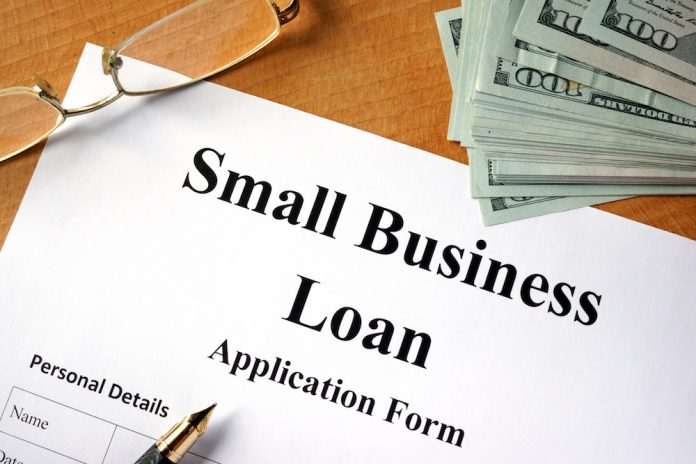Right now might just be the best time for you find a small business loan since 2008’s economic crash. Improved economic conditions and the big increase in competition mean that lenders are now willing to slash most of their rates for good prospective clients. Unfortunately, this doesn’t mean that it is easy to obtain small business loans from the traditional banks. You should continue trying and you will eventually receive a low-interest rate if you qualify. However, if you are like the majority of small businesses, then you might come up empty.
The good news is that several online lenders are currently giving banks a run for their clients and money by working directly with small business owners. In most cases, they usually make the lending process more convenient, with a quicker turnaround, more flexible lending criteria, and more transparent terms. Nevertheless, be aware that you will likely be getting a relatively higher APR.
If you are searching for a competitive small business loan, and you have struck out at the credit unions and local banks, do not worry because we have examined several small business online lenders to find the best options just for you. Here is a comprehensive review of 3 best small business loans:
1. Lending Club
(image)
Source: lendingclub.com
Lending Club, the country’s largest peer-to-peer online lender, started offering small business loans in March 2014; a completely separate program from their key product: unsecured personal loans.
You need to have owned your business for a minimum of 2 years and have a minimum of $75,000 annual revenue. Borrowers can request between $15,000 and $300,000 and then pay back these loans under their flexible terms that range from 1-5 years. Their interest rates range from 5.99 percent to 35.89 percent. Lending Club is the best APR available to borrowers with excellent credits. These rates are disclosed clearly and they are among the most competitive rates in the industry.
There’s a wide a range of fees that you should know about: Lending Club normally charges an origination fee of around 1- 6 percent. There’s also a $15 fee for any unsuccessful payment as well as payments by check. The late payments cost $15 or 5 percent of the outstanding balance.
Who is it good for?
Lending Club is ideal for any relatively established business that needs flexible repayment terms from one of the country’s largest and most established peer-to-peer small business loans lender.
Who should pass?
Very small or new businesses will probably not qualify for Lending Club. In addition, the residents of West Virginia and Iowa are not eligible to borrow. If you need fast cash, you should note that it might take up to 2 weeks for the loan to be funded.
2. Prosper
(image)
Source: cnafinance.com
Prosper is quite similar to Lending Club. However, it does not have separate loans for small businesses. Prosper makes a great choice if you want a smaller amount of cash (you can always borrow up to $35,000) and your business does not need to have an established track record to qualify.
APRs usually range from 5.99 – 32.99 percent. It might take up to 2 weeks for the loan to be funded fully and you can only choose a 3 or 5-year term.
Who is it good for?
Prosper will work best for new small businesses that need a smaller amount of money ($35,000 or less) that does not have the longevity or revenue to qualify for the dedicated small business loans. Being one of the country’s biggest peer-to-peer loan lenders, it is a great pick for a person who is nervous about getting their loan online.
Who should pass?
Any small-business owner who does not want to put his/her personal credits on the line shall want to skip using Prosper. The relatively lower loan limit and the inflexible terms might also be too restrictive for certain people. The 2-week wait for money also applies with Prosper.
3. Funding Circle
(image)
Source: fundingcircle.com
Funding Circle, the peer-to-peer lending behemoth from the UK, is solely dedicated to small business financing. Funding Circle launched in the United States in 2013 and offers loans ranging from $25,000 to $500,000. The rates range from 5.49 – 27.79 percent. Terms are flexible and they range from 1-5 years.
There are only 2 fees: the flat origination fee that ranges from 1.49 – 4.99 percent and the flat late payment fees that’re equivalent to 10 percent of the missed payments. Funding Circle requires annual revenue of no less than $150,000 and a minimum of 2 years in business. Both personal and business tax returns along with the business’ bank statements are also required to apply (more documentation is needed for loans that exceed $300,000).
Who is it good for?
An established small business that wants to borrow a large sum up to $500,000 can use Funding Circle. Residents of all states in the U.S except Nevada are also eligible. Funding Circle is also a particularly great pick for small businesses that would like to keep their fees minimal and also easy to understand.
Who should pass?
Funding Circle requires $150,000 in annual revenue. As such, newer businesses might have to search elsewhere.














